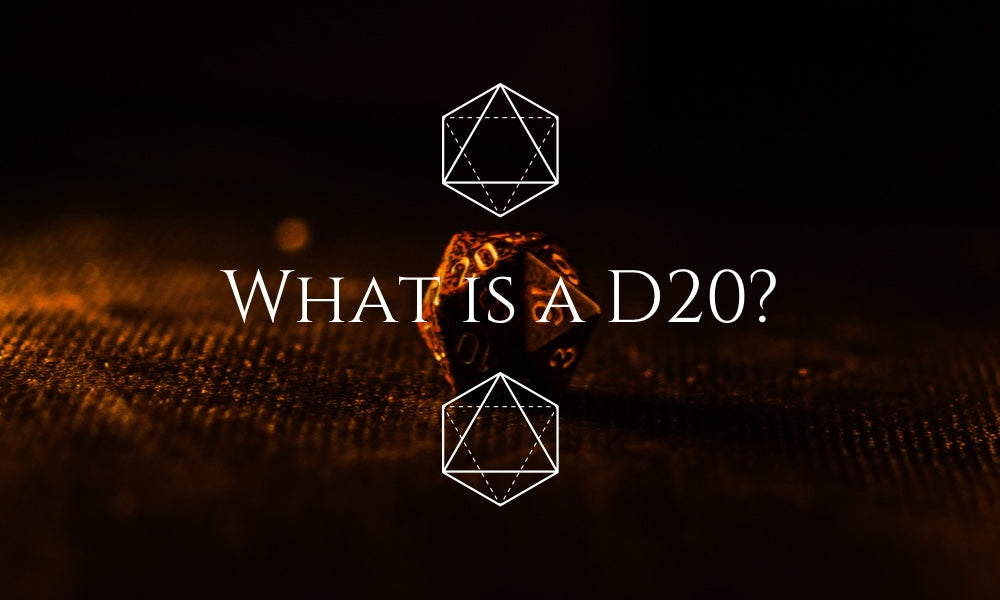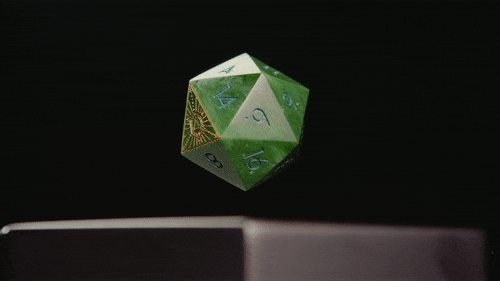RPG Character Creation Corner: Building Memorable Player Characters
Author: Justin Handlin - Crit Academy
Tabletop roleplaying games (RPGs) are a fantastic way to immerse yourself in a world of adventure, where your actions shape the story and your character's journey is entirely in your hands. Character creation is one of the most crucial parts of any RPG, and it's essential to get it right to make the game truly unforgettable. A player's character is not just an avatar in the game but the embodiment of their imagination and creativity. With the right approach, character creation can be a deeply rewarding and enjoyable experience.
Creating unique and interesting characters is the foundation of a memorable RPG. It's the characters who drive the story, and their personalities and motivations bring the game to life. But where do you start when it comes to character creation? How do you take a concept and turn it into a fully realized and engaging character that can carry a story? In this blog, we'll explore some tips and tricks for building unforgettable player characters that will help you take your game to the next level.
Start with a concept
The first step in creating a memorable player character is to start with a concept. This concept should be a broad idea of who your character is and what they're all about. It could be something as simple as "a grizzled veteran soldier" or as complex as "a half-elf rogue who's searching for their long-lost father." It can be helpful to draw inspiration from various sources, such as movies, books, or other RPGs. This concept should not only be exciting to you but also something that fits within the world and story being played. It is also essential to consider the group dynamic and the setting in which the character will be played, ensuring they fit with the overall tone and style of the game. Whatever your concept may be, it should be something that excites you and sparks your creativity.
Add depth and detail
Adding depth and detail to your character can take your concept to the next level. It's important to think about all aspects of your character's life and experiences to make them more well-rounded and believable. Here are some examples to consider:
- Backstory: Where did your character come from? What was their childhood like? What significant events have occurred in their life? Did they experience any traumatic events or have any life-changing moments? These details can add depth and complexity to your character, making them feel more like a real person.
- Personality: What are your character's personality traits? Are they optimistic, pessimistic, shy, outgoing, sarcastic, or serious? Think about how these traits influence their behavior and decision-making in different situations.
- Motivations: What drives your character? Is it money, power, revenge, justice, or something else entirely? Knowing your character's motivations can help guide their actions and interactions with other characters in the game.
- Strengths and weaknesses: What are your character's strengths and weaknesses? Are they a skilled fighter but have a short temper? Are they great at persuasion but terrible at stealth? Identifying these traits can add depth to your character and create opportunities for interesting gameplay.
- By adding depth and detail to your character, you'll not only create a more interesting and memorable character but also give yourself more material to work with as you play the game. The more you know about your character, the easier it will be to make decisions and role-play them effectively.
Answering these questions will help you create a fully fleshed-out character that feels real and authentic.
Give your character flaws
One of the biggest mistakes players make when creating characters is making them too perfect. While it's understandable to want to create a powerful and capable character, it's the flaws and imperfections that make characters truly memorable. When creating a character, it's important to remember that flaws and imperfections are what make them relatable and interesting. Giving your character a fear, weakness, or bad habit can add depth and complexity to their personality, making them stand out from other characters in the game.
For example, a paladin with a fear of spiders may seem like a strange combination, but it adds an interesting layer to their character. They may be fearless in battle but freeze up when faced with a spider, creating an opportunity for role-playing and character development. Similarly, a wizard with a weakness for gambling may struggle with managing their finances, leading to interesting plot points and interactions with other characters.
It's important to note that flaws should not be too extreme or debilitating to the point where they become a hindrance to the game. Rather, they should be realistic and manageable, allowing for growth and development throughout the game.
So, giiving your character flaws can add depth and complexity to their personality, making them more relatable and interesting to play. Don't be afraid to think outside the box and create unique combinations of strengths and weaknesses to make your character stand out in the game.
These flaws not only make your character more interesting, but they also give you something to role-play and explore during the game.
Choose a unique class and race combination
Choosing a unique class and race combination is an excellent way to make your character stand out from the rest of the group. While the classic human fighter or elven ranger may be tempting, taking the time to explore more obscure options can result in a more unique and memorable character.
For instance, a tabaxi bard is an excellent option for players who want to incorporate a feline twist into bardic music and poems. Just imagine a bard signing about their catnip addiction. Alternatively, a tiefling paladin can offer a surprising take on the typically righteous and honorable paladin class as tieflings look evil and dark in appearance with demon horns and tails.
Don't be afraid to mix and match different classes and races to create something entirely new. For example, combining the undead-raising abilities of a necromancer with the healing magic of a cleric can result in a character that is both eerie and unconventional.
Ultimately, choosing a unique class and race combination is an opportunity to showcase your creativity and add a fresh perspective to the game. So don't be afraid to explore lesser-known options and push the boundaries of what is traditionally considered "normal" in the game.
While it's tempting to go with the tried-and-true options, like a human fighter or an elven ranger, there are plenty of other options out there that can make for a more interesting and memorable character. These less common options can add a new level of intrigue and excitement to the game.
Use physical descriptions to your advantage
When creating your character, it's essential to give some thought to their physical appearance. Physical descriptions can convey a lot about a character's personality, background, and story. Adding unique physical traits to your character can also help make them more memorable to other players and the DM.
For example, let's say you're creating a character who is a half-orc barbarian. Instead of just describing them as muscular and intimidating, you could give them a distinctive facial tattoo that symbolizes their tribe or a scar that tells a story of a past battle. These physical traits can give your character more depth and make them more interesting.
In addition to scars and tattoos, you can also consider giving your character unique clothing or accessories. Maybe they wear a distinctive hat that they picked up on their travels, or they always carry a particular weapon or trinket that has special significance to them. These small details can make your character more memorable and help them stand out from the crowd.
When thinking about your character's physical description, don't forget to consider the "why" behind their appearance. Why does your character have that particular hairstyle or scar? What's the story behind the unique accessory they always carry? These details can help to flesh out your character's backstory and make them feel more like a real person rather than just a collection of stats and abilities.
Collaborate with other players
Creating memorable player characters doesn't have to be a solo endeavor. Consider collaborating with other players during character creation is a great way to ensure that the group's characters work well together and have interesting dynamics. For example, if one player is creating a character who is a noble who has fallen from grace, another player could create a character who was previously employed by the noble and is still loyal to them despite their downfall. This connection adds depth and intrigue to both characters.
Another way to collaborate is to create characters with complementary strengths and weaknesses. For example, if one player is creating a character who is a skilled fighter but lacks social skills, another player could create a character who is a charismatic bard who can handle the social aspects of the game.
You could also consider collaborating on creating a shared backstory for the group. For instance, maybe all of the characters grew up in the same town and were childhood friends. This shared history gives the players a sense of camaraderie and can lead to interesting roleplay and plot developments.
Ultimately, collaborating with other players allows for a more cohesive and interesting group of characters, leading to a more engaging and enjoyable game. So don't be afraid to bounce ideas off of each other and see what develops!
Stay true to your character
Finally, the key to creating a memorable player character is to stay true to who they are throughout the game. Don't be afraid to make tough decisions or take risks that align with your character's personality and motivations. Role-play your character in a consistent and authentic way, even when it's difficult or inconvenient. But, also let them grow from who they are are, evolve based on the circumstances. By staying true to your character, you'll not only create a memorable character, but you'll also contribute to a more engaging and exciting game.
In the end, building memorable player characters is a crucial part of any successful Roleplaying campaign. By investing time and effort into character creation, players can bring their characters to life and create engaging and immersive stories. Starting with a strong concept and backstory, choosing the right race and class, and selecting fitting personality traits and flaws are all important factors to consider when creating a character.
It's also essential to remember that character development doesn't stop at character creation. Players should continue to build on their characters throughout the campaign by making choices that align with their character's personalities and values. This not only adds depth to the character but also creates opportunities for interesting role-playing moments.
Finally, it's important to have fun with character creation and not take it too seriously. While creating a character with a detailed backstory and complex personality traits can be rewarding, it's ultimately about having fun and creating an enjoyable experience for everyone at the table.
So go forth, adventurers, and create characters that will go down in Dungeons and Dragons history! With a little creativity, planning, and a healthy dose of imagination, your characters are sure to be memorable and leave a lasting impact on your campaign.
If you enjoy this content, please check out Justin’s other work at www.critacademy.com


